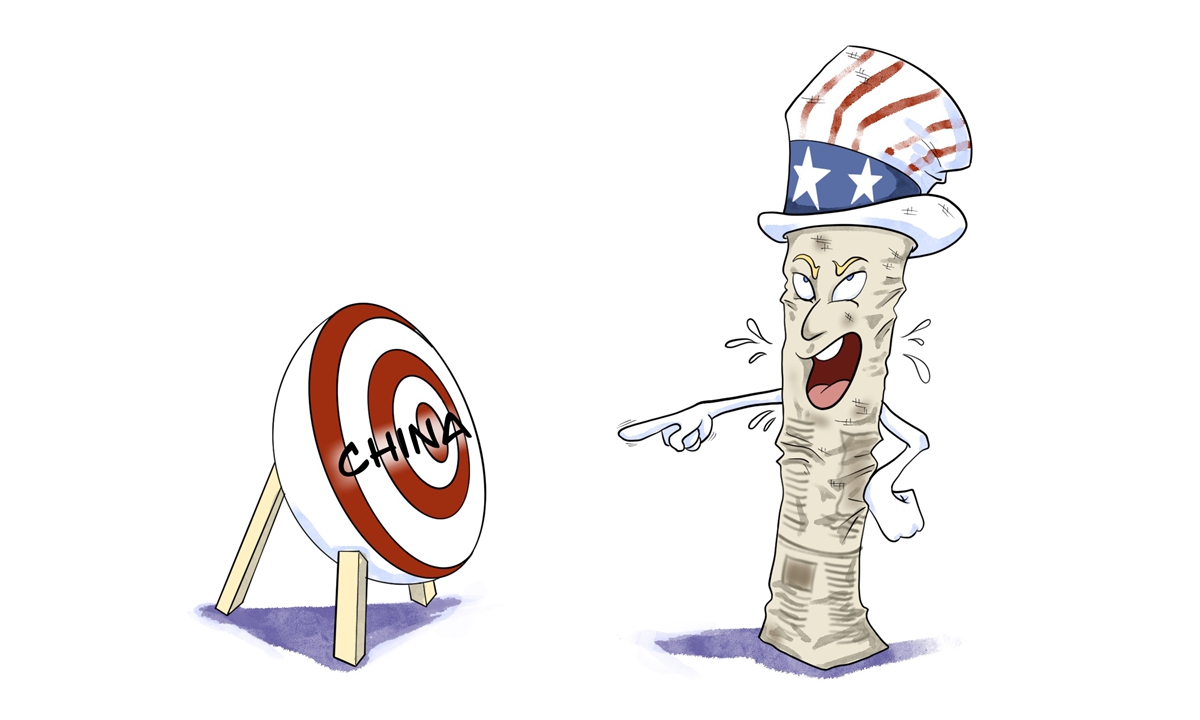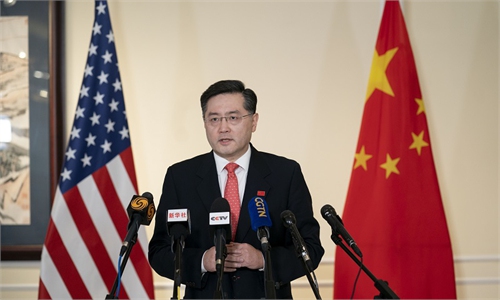COMMENTS / EXPERT ASSESSMENT
Ending Afghan war won’t give US extra strength against China

Illustration: Tang Tengfei/Global Times
After a chaotic and deadly evacuation debacle, the US' 20-year war in Afghanistan ended in disgrace and defeat. Political finger-pointing and calls for refection and accountability were seen and heard in the US.Also, there is a dangerous sign of the US repeating the same disastrous mistake should Washington elites have their way.
Defending his decision to withdraw US troops from Afghanistan that left 13 US soldiers and over 200 innocent Afghan people dead at the Kabul international airport days ago, US President Joe Biden argued in a speech that ending the Afghan war would save his administration more resources to tackle China and Russia.
"There's nothing China or Russia would rather have, would want more in this competition than the United States to be bogged down another decade in Afghanistan," Biden said, even as he urged that "we've got to learn from our mistakes."
The latest proclamation by Biden doesn't fit with the words of someone trying to learn from past mistakes. Biden is clearly making the case that ending the costly Afghan war would give the US more resources to contain China and Russia, with Biden previously referring to a "serious competition" with China.
In case some in the US have forgotten, the US has already launched an economic war with China, fought in the sphere of trade and technology - not militarily. The war was started by his predecessor Donald Trump, but Biden is continuing Trump's anti-China efforts and, in some areas, even escalating the confrontation. Though the trade war has not directly led to loss of American lives like the Afghan war did, the economic cost continues to mount and, by some estimate, could cost more than the $2 trillion US wasted in the Afghan war.
According to a study commissioned by the US-China Business Council, which said that the trade war had already caused a loss of 245,000 US jobs and could lead to the loss of an additional 145,000 jobs by 2025. In an "escalation scenario," the study shows, a "significant decoupling," for which the US is pushing, could lead to $1.6 trillion in lost US GDP over the next five years.
While many do not anticipate a military hot war between China and the US in the near term, despite the US military's constant and dangerous provocation in the South China Sea and the Taiwan Straits, there is no doubt that the US is pushing for an economic decoupling as it seeks to contain China's rapid rise, which politicians in Washington say they cannot accept.
As Biden tries to deflect US domestic criticism about Afghanistan as his biggest stain yet on his presidency, Washington is likely to escalate tensions with China, particularly in the economic field.
Many have already begun jumping on the bandwagon. Even though the US troops withdrawal mission is far from over with hundreds of US citizens and its local allies left behind in Afghanistan, Western media outlets and Washington politicians have already shift their focus onto China.
Over the past several days, some media outlets sought to hype up news of the closure of a US business group in Southwest China, with a US State Department official using the news to attack China's regulations. US media outlets have also sought to play up China's recent regulatory actions against giant online platforms.
Given Biden's renewed focus on China, desperation to deflect criticism and encouragement from Western elites, it is highly likely that Washington may step up crackdown on China in multiple fronts, including economic sanctions, restrictions on Chinese technology firms and push for a financial decoupling.
From China's perspective, nothing the US does or doesn't will change its regulatory actions or set policies, not to mention its long-term social and economic development path.
If the US undermines China's national interest in any way, it can expect swift countermeasures from China. That was the case before the US' pullout from Afghanistan, and it would be gravely mistaken for Biden to naively think ending the 20-year Afghanistan war means the US magically has gained extra power.
The author is the deputy director of the Business News Center at the Global Times. bizopinion@globaltimes.com.cn




